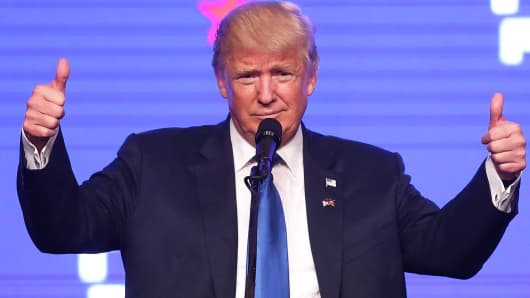On the eve of the first debate, the race is far closer than most experts had predicted. Hillary Clinton has fallen far from the commanding heights of August. Nationwide and swing state polls show Trump closing the gap quickly. The debate could break things wide open—in either direction.
The candidates will spend their time on stage fielding questions about policy and highlighting their differences. And virtually nothing that either of them say about any matter of substance at the debate will matter on Election Day.
What could swing votes is demeanor. Record numbers of voters are unenthusiastic about either candidate. They are desperate for something—anything—that will make them feel better about casting a vote for one of them. They will be watching the debate intently for cues that will allow them to vote without feeling ill. And that's why the debate is Donald Trump's to win or lose.
While Trump and Clinton have both been overexposed for decades, it is easier to envision some candidates playing the role of president than others. Clinton—like George H.W. Bush, Bob Dole, Al Gore, John Kerry, and John McCain—is embedded in America's collective consciousness playing near-presidential roles. Trump—like Bill Clinton, George W. Bush and Barack Obama—is not. As a result, Clinton begins, as we have heard ad nauseum, ostensibly more "presidential"—a superficial advantage that history – including the recent GOP primaries - tells us confers few electoral benefits.
If Trump comes off as composed, serious and disciplined, as he has done while delivering some of his well-designed speeches and at his meetings with the presidents of Mexico and Egypt, he could convince many of the voters currently sitting on the sidelines to swing his way.
Many of them are already predisposed toward doing so. Polls show that large numbers of Republicans, Republican-leaning independents, and voters craving a change from the Obama years remain undecided or aligned for the moment with a third party candidate whose existence is all that stands between the current neck-and-neck race and a victory over Clinton. They want to vote for the Republican, but they are not yet comfortable voting for Trump.



